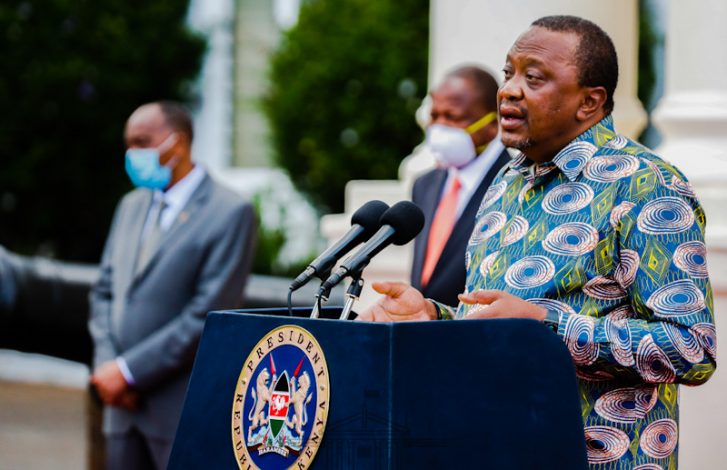This content has been archived. It may no longer be relevant
President Uhuru Kenyatta on Thursday said his government is formulating Kenya’s Post Covid-19 Economic Recovery Plan that will reinvigorate the economy.
“And in this, we will be engaging all stakeholders to re-engineer existing economic plans and policies in light of the crisis,” said the Head of state in his Fourth Presidential address on the Coronavirus pandemic.
Renegotiating debt payment
According to the President, proposed initiatives will be complemented by the solidarity that the world is showing.
“The countries with the largest economies in the world are in discussion with ourselves on the issue of suspension of debt for a period in order to allow countries to be able to spend more in combatting this pandemic and its effects as well as the economic recovery that needs to also come,” President Kenyatta said in his address.
The President said that financial institutions such as the African Development Bank and the African-Import Export Bank have created emergency credit facilities to countries like Kenya.
“We will utilise these facilities to support producers so that they can return to full production and protect the jobs and livelihoods,” Kenyatta said.
Kenya will be a beneficiary of the freeze bilateral government loan repayments made by the G20 beginning May being one of the 76 poorest states. With the freeze, it is likely to save at least KSh71 billion from the debt service suspension.
However, Genghis Capital Analysts are of the view ” Should Kenya formally request for debt relief from the G-20 creditor nations, it will have a positive impact majorly during 1H20/21 period. ”
READ:
- Kenya’s Fiscal Deficit Rising Sharply With Revised Economic Growth of 3% in FY20
- Kenya Faces Deep Economic Contraction on Reduced Spending
World Bank’s Africa’s Pulse report urges governments to think ahead about the exit strategy from COVID-19 geared toward ‘building future resilience’.
“African economies still need to design policy pathways to achieve sustainable growth, economic diversification, and inclusion,” reads part of the report.
READ:
The International Development Association (IDA) is the part of the World Bank that helps the world’s poorest countries.




